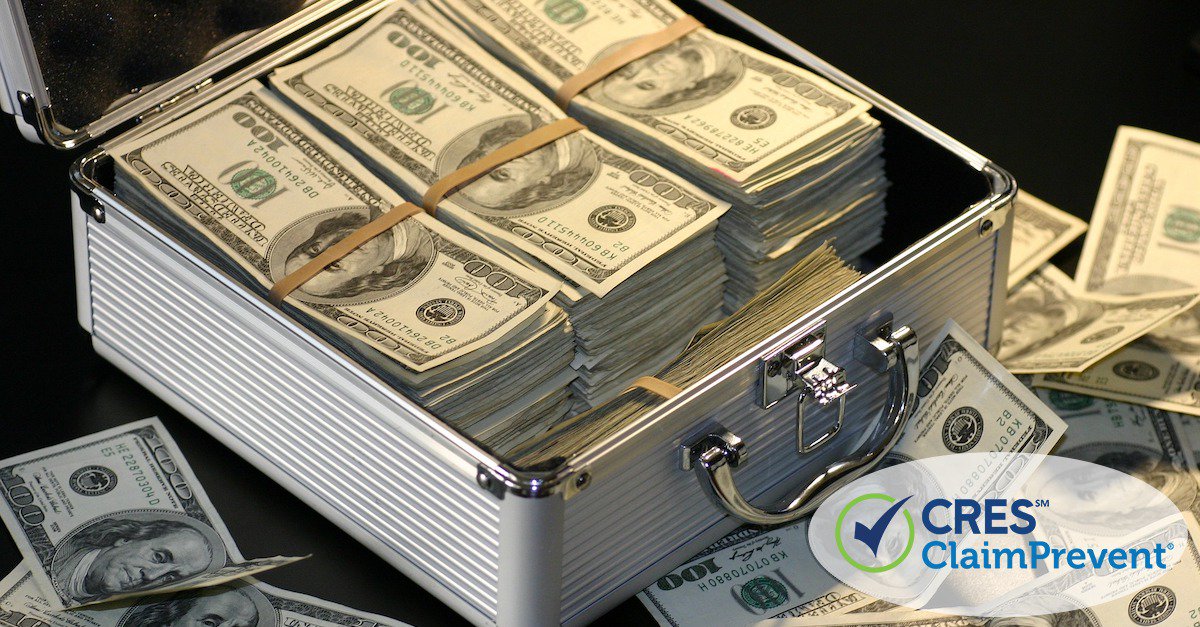Sometimes you may come across wealthy clients that want to pay cash for a property. In the United States, only around 23% of property sales are cash transactions. Typically, buyers purchasing for investment purposes and foreign clients are more likely to pay cash than other home buyers. But, when should you be concerned about a cash sale of a property? What if you suspect money laundering?
As a real estate professional, you need to be aware of the signs of suspicious activity. You need to know what questions to ask and what information to gather to satisfy yourself that you’re dealing with a legitimate client.
Red Flags to Watch Out For
Several signs can indicate a cash buyer might be suspicious. Watch out for these red flags…
#1 Property values that differ significantly from market prices
Sales that involve properties that are markedly undervalued or well above market prices can indicate suspicious activity. Sellers who aren’t interested in negotiating a better price can also be a telltale sign that something isn’t quite right.
#2 Location of the buyer and/or property
If the buyer is based in a country known for a high level of money laundering activities, that may indicate a potential issue. Likewise, there are some property markets where money laundering is more common. For example, New York, San Francisco and Miami are markets with high appreciation values which are often a target.
Also, be wary of wire transfers from foreign countries, particularly from countries sanctioned by the Office of Foreign Assets Control (OFAC), such as Iran, Cuba and Syria.
Discrepancies between the location of the buyer, the source of the funding for the property, and the location of the company or person whose name is to go on the title can also indicate a need for further scrutiny.
#3 Where the property is to be in the name of a third party
Situations where the title is to be in the name of a third party can sometimes be an indicator that the purchaser wishes to hide their identity. While shell corporations aren’t illegal, they can be used to hide the owners of a business from public scrutiny. Many shell corporations aren’t even in business.
#4 Unexplained fast resales of properties
One of the key attractions for money launderers is that real estate transactions involve significant volumes of money. This provides a unique opportunity to not only “wash” their money, but also to make quick profits in appreciating markets. Look out for properties being bought and sold quickly and for requests for fast settlements without adequate explanation.
#5 Sight unseen purchases
Scenarios where an investor has no interest in seeing the property or finding out about its features can be a red flag. As such, you may wish to source additional information, so you can be confident you’re dealing with a legitimate buyer.
It’s good to take a cautious approach when dealing with cash sales, but keep in mind, not all cash sales are fraudulent. In tight housing markets, a cash offer is often used to help it stand out above the rest. Settlements are frequently delayed by buyers organizing financing, so cash settlements are a very attractive offer for sellers.
What To Ask Cash Buyers
If you’re suspicious of a cash buyer, there are some strategies you can put into place to minimize your risk:
- Focus on due diligence. This means asking for identification, making an effort to find out who your client is and understanding their interest in the property.
- When companies are making a purchase, check their website for contact details to confirm they are who they say they are. However, keep in mind that companies control their own website content. Be sure to also check independent sources of information, such as state company registration information.
- Ask for professional advice from a senior real estate professional or legal professional if in doubt.
Reducing the Risks
Be Aware of Your Obligations to Submit a Form 8300
All businesses (including real estate agents) who receive more than $10,000 in cash for either a single transaction or multiple related transactions should file a Form 8300 with the IRS. While cashier’s checks, bank drafts and money orders are considered “cash”, these instruments are generally reported by the issuing bank.
Consider Reporting Suspicious Behavior
If you have a reasonable suspicion that a sale is being financed for illegal purposes, you can file a suspicious activity report with the US Treasury’s Financial Crimes Enforcement Network (FinCEN). These reports are designed for use by banks, but they’re an avenue for real estate agents also. Alternatively, you can call FinCEN’s hotline on 1-800-949-2732.
Keep in mind that if you wrongly report a company, there could be negative consequences. It’s highly recommended that you speak with an attorney before lodging such a claim.
Ensure You’re Adequately Insured
Don’t get caught without E&O coverage — or with a “bare bones” policy that doesn’t protect you from specific-to-real-estate risks. CRES E&O + ClaimPrevent® policies offer superior coverage and expert legal advice from qualified attorneys 7 days a week at no additional charge.
Contact CRES at 800-880-2747 to find out how you can tailor a policy to give you superior E&O protection.
